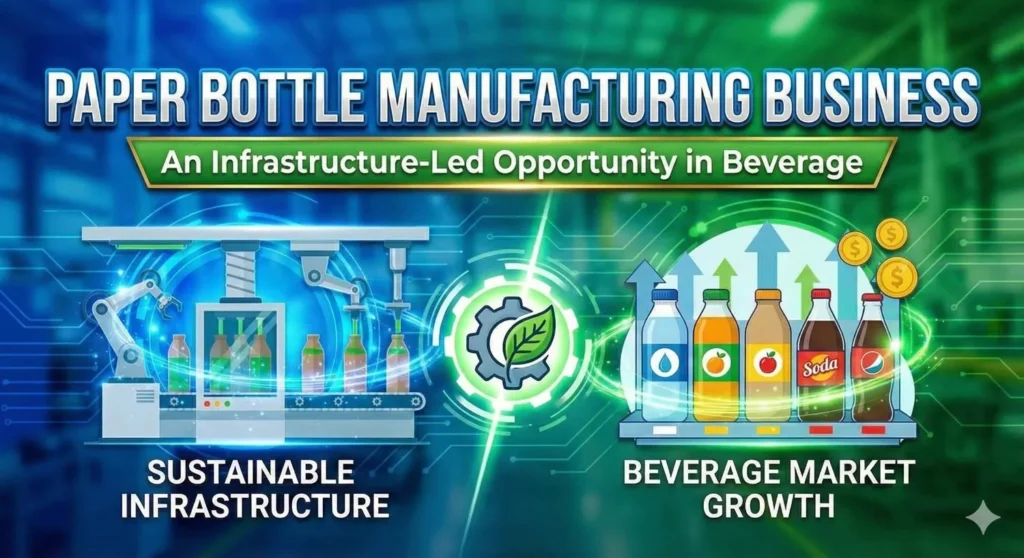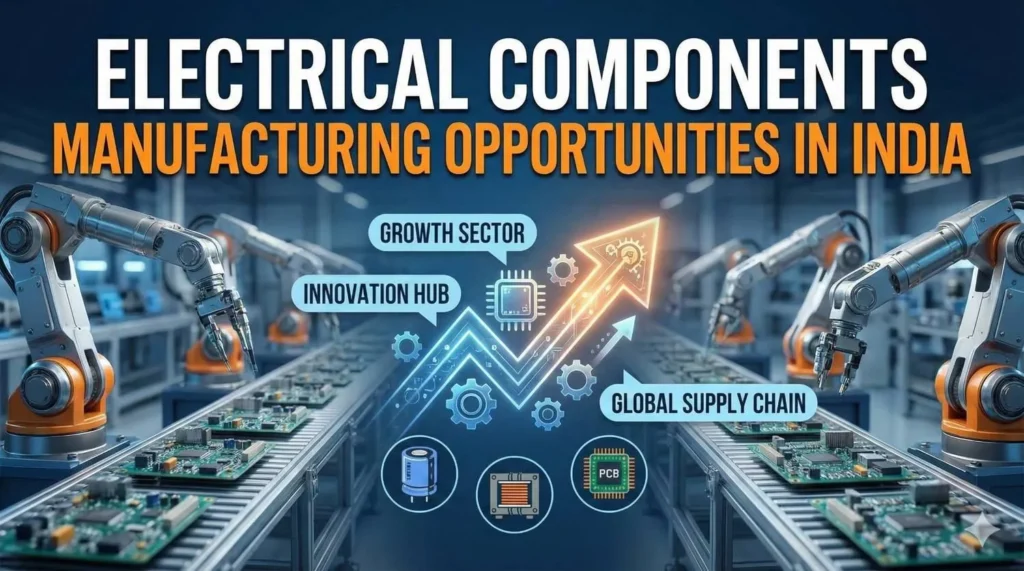As the world aggressively shifts toward electrification, the role of lithium-ion battery recycling becomes paramount. With electric vehicles (EVs), portable electronics, and renewable energy systems consuming a staggering number of lithium-ion batteries every year, the challenge of managing spent batteries has emerged as both a critical concern and a lucrative opportunity. This article provides an in-depth project report for setting up a lithium-ion battery recycling plant, exploring every vital detail from technology to profitability.
Contents
- 1 Global Demand for Lithium-ion Battery Recycling
- 1.1 Why Invest in a Lithium-ion Battery Recycling Plant?
- 1.2 Comprehensive Business Model Overview
- 1.3 Technology and Equipment Required
- 1.4 Regulatory and Legal Considerations
- 1.5 Operational Team and HR Requirements
- 1.6 Costs and Financial Projections
- 1.7 Revenue Generation and Market Scope
- 1.8 Environmental and Social Impact
- 1.9 Market Trends and Future Outlook
- 1.10 Conclusion
Global Demand for Lithium-ion Battery Recycling
The consumption of lithium-ion batteries is expected to exceed 3,000 GWh by 2030, largely driven by EV adoption, solar power storage, and increased digitization. However, most of these batteries are discarded after their lifecycle, contributing to e-waste. Recycling them not only recovers valuable metals like lithium, cobalt, and nickel but also supports sustainable manufacturing and reduces dependency on volatile mining operations.
Governments and international organizations are now enforcing stricter rules around battery recycling. India, for instance, implemented the Battery Waste Management Rules, 2022, which mandate Extended Producer Responsibility (EPR) and hold manufacturers accountable for recycling spent batteries.
Why Invest in a Lithium-ion Battery Recycling Plant?
Setting up a lithium-ion battery recycling plant is more than a business—it’s an essential part of a green, circular economy. Here’s why this industry offers high potential:
- High Profit Margins: Recovered metals can be sold at competitive prices, reducing the cost of sourcing virgin materials.
- Policy Support: Governments are offering subsidies, tax exemptions, and technology support for green ventures.
- Environmental Necessity: Improper disposal leads to soil and groundwater contamination, posing ecological threats.
- Job Creation: Establishing a plant creates jobs across multiple disciplines including engineering, logistics, safety, and R&D.
- Resource Independence: It reduces the need for importing critical minerals from unstable or monopolized markets.
Comprehensive Business Model Overview
To run a profitable lithium-ion battery recycling unit, we need a well-structured business model involving material sourcing, advanced processing, logistics, and market linkages. Below is a detailed breakdown of each component:
Raw Material Sourcing Channels
Lithium-ion batteries come from various sources, including:
- Electric Vehicles (EVs): EV manufacturers and fleet operators produce a significant quantity of battery waste.
- Consumer Electronics: Mobile phones, laptops, and tablets have short battery life cycles.
- Industrial Applications: UPS systems and telecom towers contribute industrial-scale battery waste.
- E-waste Collection Drives: Municipalities, recyclers, and NGOs often run collection programs.
Partnerships with vehicle dealerships, e-waste aggregators, and OEMs are essential to maintain a constant supply.
Location and Infrastructure Requirements
A strategically located plant near industrial zones or transportation hubs reduces logistical costs. Key infrastructure includes:
- Battery Discharging Units: For safe energy drainage from batteries.
- Crushing and Shredding Machines: Mechanical processing units to break down battery packs.
- Sorting and Separation Units: Equipment to segregate metals and non-metals.
- Chemical Processing Tanks: For hydrometallurgical or pyrometallurgical recovery.
- Effluent Treatment Plants (ETPs): Mandatory for treating wastewater and chemical discharge.
- Storage Areas: Secured storage for hazardous materials and recovered metals.
A medium-sized plant that processes 10,000 tons per year typically requires a 20,000 sq. ft. space and demands an investment between ?15–25 crores..
Detailed Process Flow of Battery Recycling
The core steps in the recycling of lithium-ion batteries include:
- Collection and Transportation: Batteries are collected, labeled as hazardous, and transported under safe conditions.
- Discharging: Remaining charge is safely drained to avoid fires or explosions.
- Mechanical Dismantling: Batteries are opened to access the internal cell components.
- Crushing and Sorting: Cells are crushed and materials are separated into plastics, metals, and electrode materials.
- Thermal Processing (Pyrometallurgy): High-temperature processing to extract cobalt, nickel, and copper.
- Chemical Processing (Hydrometallurgy): Acid leaching and solvent extraction to isolate lithium, cobalt, and other rare elements.
- Material Purification: Refinement of extracted metals to make them battery-grade.
Lithium-ion battery recycling plants may also include advanced direct recycling methods, which aim to retain cathode materials in usable form. Though still developing, these methods promise higher recovery efficiency and lower environmental impact.
Technology and Equipment Required
Key technologies include:
- Automated Sorting Lines
- Thermal Chambers
- Acid Leach Reactors
- Solvent Extraction Columns
- Induction Furnaces
- Advanced Control Systems
- Dust & Emission Control Units
Automation not only improves safety and output but also ensures compliance with regulatory standards.
Regulatory and Legal Considerations
Running a battery recycling plant requires strict compliance with environmental and safety regulations. Approvals must be obtained from:
- State Pollution Control Boards (SPCB)
- Central Pollution Control Board (CPCB)
- MoEFCC
- Directorate of Industrial Safety and Health (DISH)
- Hazardous Waste Handling Rules
Additionally, the business must register under the Battery Waste Management Rules and obtain EPR authorization.
Operational Team and HR Requirements
A successful recycling plant will need:
- Process Engineers
- Chemical Analysts
- Environmental Scientists
- Machine Operators
- Safety Managers
- Logistics Coordinators
Training programs should be implemented to manage hazardous material handling, fire safety, chemical exposure, and environmental protection.
Costs and Financial Projections
Estimated cost components for a medium-scale plant:
- Land & Infrastructure: ?5–8 Crores
- Machinery & Equipment: ?7–10 Crores
- Licensing & Compliance: ?1–2 Crores
- Working Capital: ?3–5 Crores
Break-even period: Generally achievable within 3–5 years, depending on capacity utilization and market access.
Revenue Generation and Market Scope
Key revenue streams:
- Sale of recovered cobalt, lithium, nickel, copper
- Scrap sale of plastic and aluminum casings
- Service fees for battery collection and processing
- Carbon credits and green subsidies
Given that cobalt trades at over $30,000 per ton and lithium around $20,000 per ton (2025 estimates), profitability can be significant. Global buyers include battery manufacturers, EV companies, and metal refineries.
Environmental and Social Impact
Lithium-ion batteries contain electrolytes and heavy metals that can pollute soil, air, and water. Proper recycling prevents:
- Groundwater contamination
- Airborne toxin release
- Mining-related deforestation
- Worker exposure to carcinogens
Recycling also contributes to UN Sustainable Development Goals (SDGs), particularly in climate action, clean energy, and responsible production.
Market Trends and Future Outlook
- Automation: Use of AI for material detection and robotic dismantling.
- Urban Mining: Cities becoming hubs for battery recovery from e-waste.
- Policy Evolution: India is expected to impose stricter EPR compliance from 2026.
- Battery Passport: Future regulations may require digital tracking of battery components for traceability.
Companies entering the lithium-ion battery recycling market today can capitalize on first-mover advantages, government incentives, and growing environmental awareness.
Conclusion
The future of energy is electric, and the future of electric is recycling. A well-planned, technologically advanced, and policy-compliant lithium-ion battery recycling plant offers enormous potential—financially, environmentally, and socially. As we navigate the energy transition, recycling will play a central role in closing the loop and reducing our global footprint.
Now is the time to invest, innovate, and build for a sustainable tomorrow.
Visit the page Select and Choose the Right Business Startup for You for sorting out the questions arising in your mind before starting any business and know which start-up you can plan.
We, at NPCS, endeavor to make business selection a simple and convenient step for any entrepreneur/startup. Our expert team, by capitalizing on its dexterity and decade’s long experience in the field, has created a list of profitable ventures for entrepreneurs who wish to diversify or venture. The list so mentioned is updated regularly to give you a regular dose of new emerging opportunities.





